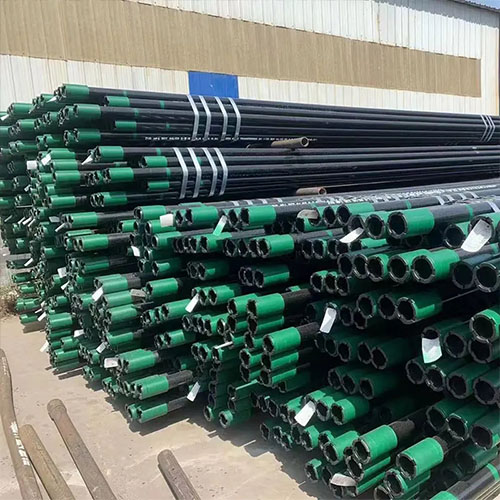Advantages of Using API couplings in Oil and gas industry
API couplings, also known as american petroleum Institute couplings, are widely used in the oil and gas industry for connecting Pipes and equipment. these couplings are designed to meet specific industry standards set by the API, ensuring that they are reliable, durable, and safe to use in demanding environments. In this article, we will discuss the advantages of using API couplings in the oil and gas industry.
One of the key advantages of API couplings is their high level of performance and reliability. These couplings are designed to withstand high pressure, temperature, and corrosive environments, making them ideal for use in oil and gas applications. API couplings are manufactured to strict specifications, ensuring that they meet the highest quality standards and can be relied upon to perform consistently in challenging conditions.

Another advantage of API couplings is their ease of installation and maintenance. These couplings are designed to be simple and quick to install, reducing downtime and labor costs. Additionally, API couplings are designed for easy maintenance, with many components being easily replaceable. This makes it easy to keep equipment running smoothly and efficiently, minimizing the risk of costly downtime.
API couplings are also known for their versatility and compatibility. These couplings are available in a wide range of sizes and configurations, making it easy to find the right coupling for any application. Additionally, API couplings are designed to be compatible with a variety of pipe materials, allowing for greater flexibility in design and construction. This versatility makes API couplings a popular choice for a wide range of oil and gas applications.
casing shoe oil and gas
In addition to their performance and versatility, API couplings are also known for their safety features. These couplings are designed to meet strict safety standards set by the API, ensuring that they are safe to use in hazardous environments. API couplings are designed to prevent leaks and spills, reducing the risk of accidents and environmental damage. Additionally, API couplings are designed to withstand high levels of stress and pressure, reducing the risk of equipment failure and ensuring the safety of workers and the environment.
Overall, API couplings offer a wide range of advantages for the oil and gas industry. From their high performance and reliability to their ease of installation and maintenance, API couplings are a popular choice for connecting pipes and equipment in demanding environments. Their versatility and compatibility make them suitable for a wide range of applications, while their safety features ensure that they can be used with confidence in hazardous environments. If you are looking for a reliable and durable solution for connecting pipes and equipment in the oil and gas industry, API couplings are an excellent choice.
Common Types of API Couplings and Their Applications
API couplings, also known as American Petroleum Institute couplings, are widely used in the oil and gas industry for connecting pipes and equipment. These couplings are designed to withstand high pressure and temperature conditions, making them essential for ensuring the safe and efficient operation of oil and gas pipelines. In this article, we will discuss some common types of API couplings and their applications in the industry.
One of the most commonly used API couplings is the API line pipe coupling. This type of coupling is used to connect two pieces of line pipe together, forming a continuous pipeline. API line pipe couplings are available in various sizes and pressure ratings to suit different pipeline requirements. These couplings are typically made of carbon steel or stainless steel to ensure durability and corrosion resistance.
Another popular type of API coupling is the API casing coupling. Casing couplings are used to connect two sections of casing pipe in oil and gas wells. These couplings are designed to provide a tight seal to prevent leaks and ensure the integrity of the wellbore. API casing couplings are available in different sizes and thread types to accommodate various casing sizes and specifications.
API Tubing couplings are another essential type of coupling used in the oil and gas industry. Tubing couplings are used to connect two sections of tubing in oil and gas wells. These couplings are designed to withstand high pressure and temperature conditions, making them ideal for use in downhole applications. API tubing couplings are available in different sizes and thread types to suit various tubing sizes and specifications.
Why are oil pipelines bad
Oil field CouplingsIn addition to line pipe, casing, and tubing couplings, there are also API specialty couplings that are designed for specific applications in the oil and gas industry. For example, API pup joints are used to adjust the length of tubing or casing strings in wells. These couplings are available in various lengths and thread types to provide flexibility in well completion and production operations.
API couplings play a crucial role in ensuring the safe and efficient operation of oil and gas pipelines and wells. These couplings are designed to withstand harsh environmental conditions and high-pressure environments, making them essential components in the industry. By using high-quality API couplings, operators can minimize the risk of leaks, failures, and downtime, ensuring the smooth operation of their oil and gas infrastructure.
In conclusion, API couplings are essential components in the oil and gas industry for connecting pipes and equipment in pipelines and wells. There are various types of API couplings available, including line pipe, casing, tubing, and specialty couplings, each designed for specific applications in the industry. By using high-quality API couplings, operators can ensure the safe and efficient operation of their oil and gas infrastructure, minimizing the risk of leaks, failures, and downtime.
